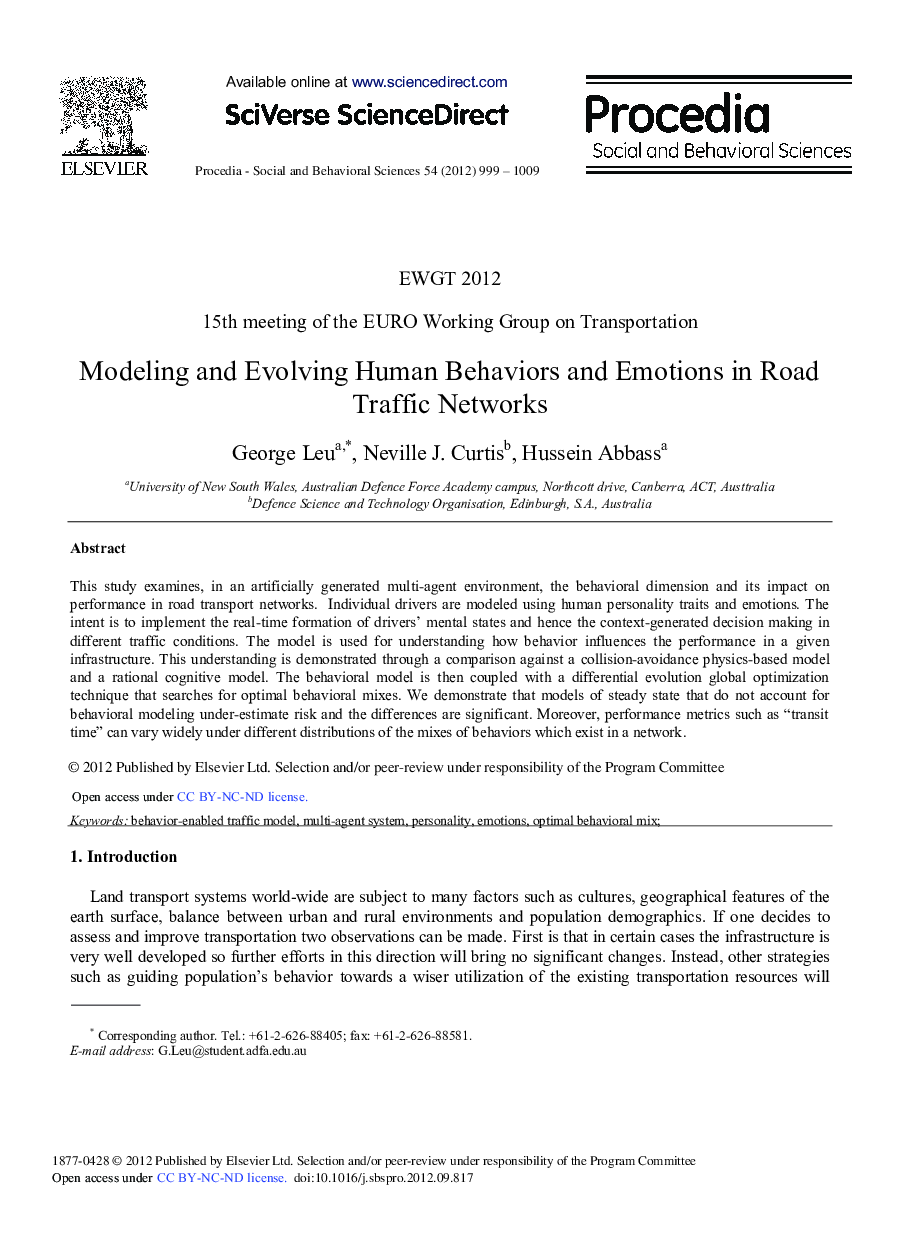| Article ID | Journal | Published Year | Pages | File Type |
|---|---|---|---|---|
| 1121434 | Procedia - Social and Behavioral Sciences | 2012 | 11 Pages |
This study examines, in an artificially generated multi-agent environment, the behavioral dimension and its impact on performance in road transport networks. Individual drivers are modeled using human personality traits and emotions. The intent is to implement the real-time formation of drivers’ mental states and hence the context-generated decision making in different traffic conditions. The model is used for understanding how behavior influences the performance in a given infrastructure. This understanding is demonstrated through a comparison against a collision-avoidance physics-based model and a rational cognitive model. The behavioral model is then coupled with a differential evolution global optimization technique that searches for optimal behavioral mixes. We demonstrate that models of steady state that do not account for behavioral modeling under-estimate risk and the differences are significant. Moreover, performance metrics such as “transit time” can vary widely under different distributions of the mixes of behaviors which exist in a network.
